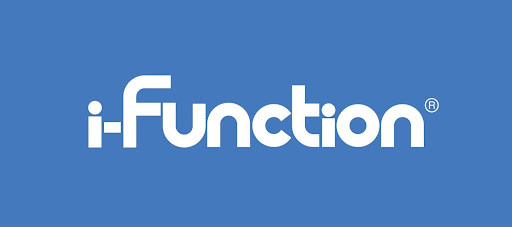From Research to Real Life: Transforming the Opportunity for Early Detection of Alzheimer's Disease with i-Function

When healthcare entrepreneur Peter Kallestrup co-founded i-Function®, he set out with a clear mission: to take powerful innovations confined to academic research and make them widely accessible tools for real-world cognitive health improvements. "What if we could leverage all that incredible research being done in universities and make it available so that it can benefit people in the real world?" Kallestrup asked. That question became the foundation of a company designed not just to innovate, but to democratize access to cognitive care.
i-Function® is led by Kallestrup alongside two highly regarded academics, Dr. Philip D. Harvey, an expert in mental health and cognition, and Dr. Sarah J. Czaja, a leading authority in functional skills and aging research. Together, they have played a significant role in developing two flagship products: LASSI-D® and FUNSAT®. The former is a digital cognitive assessment tool; the latter, a digital functional skills assessment and training platform. While both serve different purposes, they both play a role in the process of assessing and supporting cognitive health.
LASSI-D™ is the company's most recent innovation, a 15-minute digital cognitive assessment designed to detect the earliest stages of Mild Cognitive Impairment (MCI) and asymptomatic older adults with preclinical Alzheimer's disease. Dr. Sara J. Czaja explains, "It's like a Cardiac Stress Test for the brain. In just 15 minutes, we can tell with high probability whether your cognitive aging is likely normal or whether something else might be going on." The test is completely self-guided, with a human avatar serving the role of a human testing technician, leading users through the process privately and comfortably on most smart devices.
The value of early detection can't be overstated. According to research published in The Lancet, up to 40% of the risk of developing Alzheimer's can be mitigated through mid-late life lifestyle changes if the warning signs are caught early. "What would it be worth to have two more years with your mom, dad, or spouse with normal cognitive and functional abilities?" Dr. Harvey asks. "It's priceless. That's what we aim to offer, more time, more clarity, more hope."
FUNSAT™, the company's original product, addresses functional skills: the day-to-day tasks that many with cognitive impairments struggle to perform. From managing medications to using online banking or navigating a phone voice menu, the tool helps individuals regain or build these critical capabilities. "It's not just about remembering or understanding something, it's about utilizing those cognitive skills in real life," says Dr. Harvey. "If we identify someone with early MCI using LASSI-D™, then FUNSAT™ becomes one of the suggested practical next steps in helping people live independently for longer."
While i-Function's tools have applications across many domains, clinical research, mental health treatment, rehabilitation, and aging care, their business model is currently B2B. Memory clinics, assisted living facilities, concierge medical practices, state mental health organizations, and pharma are among their key clients. "We are solving two problems," Kallestrup explains. "First, we give providers a fast, affordable, documented way to screen for early cognitive issues. Second, we offer an actionable path forward. That combination is rare."
The company has already seen early traction. FUNSAT™ is being used in several state-run mental health facilities and in clinical trials, and LASSI-D™ has entered its first wave of clinical adoption. The rollout is ongoing, with strong interest from both specialists and academic research centers alike. "Doctors don't always have time or the appropriate tools to assess cognitive health thoroughly or early enough, and many aren't necessarily comfortable making this assessment independently," Kallestrup notes. "With LASSI-D, they can run a fast, highly accurate screening with instant results and recommendations while patients wait. That's powerful."
Importantly, i-Function® is not focused on elite clinics or high-income users. "We are not building expensive tools for the wealthy," Peter Kallestrup, CEO of i-Function®, emphasizes. "This needs to be accessible to millions. Affordability is core to our mission." This ethos is one reason i-Function® in-licenses tools from leading research universities, then develops them into scalable, tech-enabled platforms. It's not about reinventing the science, it's about amplifying it.
That model has also gathered serious attention. The company's research has been supported by several highly competitive NIH grants. "Everything we do is backed by peer-reviewed science," Kallestrup says. "We have had the privilege of presenting on national stages, and last year we were cited in the National Institute of Aging annual report. But the most important recognition is seeing how our tools can change lives."
Looking ahead, i-Function® plans to continue to develop its current solutions as well as broaden its portfolio with new tools focused on the broad domain of cognitive health. The goal remains consistent: find transformative but underutilized academic discoveries and bring them to the people who need them most. For Kallestrup, it's a matter of urgency as much as innovation. "If you knew you were at risk of Alzheimer's, wouldn't you want to act now? Wouldn't you want the chance to intervene while it still matters?" he says. "That's the opportunity we are giving people. And we are just getting started."
© Copyright IBTimes 2024. All rights reserved.




















